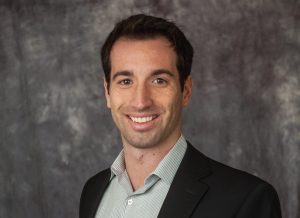SYRACUSE, N.Y. — The National Institutes of Health (NIH) has awarded Juntao Luo, a researcher at Upstate Medical University, a four-year, $1.5 million grant for continued work on a medical project.
Luo, a professor at the medical school, will use the funding to continue studying a “novel” technique of removing toxins and other dangerous molecules from the blood to prevent and treat dangerous sepsis, Upstate Medical said in a Wednesday news release.
Sepsis occurs when the body’s response to an infection triggers a dangerous systemic inflammation, which can lead to organ failure, and in severe cases, death, the medical school said. Removing those triggers and mediators from the blood can lower the risk of developing sepsis.
(Sponsored)

Standing Out in a Crowded Market: How JRECK Subs Sets Itself Apart in the Quick-Service Industry
In a sea of fast-food and sandwich chains, JRECK Subs continues to grow a loyal following — not by shouting the loudest, but by staying true to what matters: fresh
The title of Luo’s project is “An innovative hemoperfusion (HP) nanotrap for sepsis treatment.” His lab is developing a “highly efficient nanotrap for hemoperfusion therapy to remove the range of triggers and mediators of sepsis.”
“Some patients will experience that hyper inflammation,” Luo said. “We can use this technique to target those molecules and save the life of the patient. (Sepsis is) the primary cause of death in the [intensive-care unit]. The clinical impact could be very broad.”
The Geneva, Switzerland–based World Health Organization estimates that sepsis affects more than 30 million people a year around the world, and kills more than 250,000 people in the U.S. annually.
Luo, who has worked at Upstate for seven years, has been working on this project for about two years. The NIH grant will “propel his research one step closer to a clinical translation,” he noted.
Luo is collaborating with Upstate professors Guirong Wang and Gary Nieman on this project. He is hoping to collaborate with additional Upstate departments to initiate clinical trials in the future.
“With this money we can further test our concept,” said Luo. “We are excited and also confident about the importance of our data.”
This is his fourth NIH grant for the Jamesville resident, Upstate Medical added.
In addition to this project, Luo’s research areas also include nanomedicine, drug delivery, cancer imaging and cancer treatment, among others.
Contact Reinhardt at ereinhardt@cnybj.com





